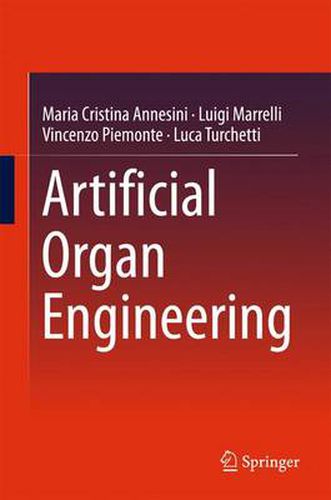Readings Newsletter
Become a Readings Member to make your shopping experience even easier.
Sign in or sign up for free!
You’re not far away from qualifying for FREE standard shipping within Australia
You’ve qualified for FREE standard shipping within Australia
The cart is loading…






This title is printed to order. This book may have been self-published. If so, we cannot guarantee the quality of the content. In the main most books will have gone through the editing process however some may not. We therefore suggest that you be aware of this before ordering this book. If in doubt check either the author or publisher’s details as we are unable to accept any returns unless they are faulty. Please contact us if you have any questions.
Artificial organs may be considered as small-scale process plants, in which heat, mass and momentum transfer operations and, possibly, chemical transformations are carried out. This book proposes a novel analysis of artificial organs based on the typical bottom-up approach used in process engineering. Starting from a description of the fundamental physico-chemical phenomena involved in the process, the whole system is rebuilt as an interconnected ensemble of elemental unit operations.
Each artificial organ is presented with a short introduction provided by expert clinicians. Devices commonly used in clinical practice are reviewed and their performance is assessed and compared by using a mathematical model based approach. Whilst mathematical modelling is a fundamental tool for quantitative descriptions of clinical devices, models are kept simple to remain focused on the essential features of each process.
Postgraduate students and researchers in the field of chemical and biomedical engineering will find that this book provides a novel and useful tool for the analysis of existing devices and, possibly, the design of new ones. This approach will also be useful for medical researchers who want to get a deeper insight into the basic working principles of artificial organs.
$9.00 standard shipping within Australia
FREE standard shipping within Australia for orders over $100.00
Express & International shipping calculated at checkout
This title is printed to order. This book may have been self-published. If so, we cannot guarantee the quality of the content. In the main most books will have gone through the editing process however some may not. We therefore suggest that you be aware of this before ordering this book. If in doubt check either the author or publisher’s details as we are unable to accept any returns unless they are faulty. Please contact us if you have any questions.
Artificial organs may be considered as small-scale process plants, in which heat, mass and momentum transfer operations and, possibly, chemical transformations are carried out. This book proposes a novel analysis of artificial organs based on the typical bottom-up approach used in process engineering. Starting from a description of the fundamental physico-chemical phenomena involved in the process, the whole system is rebuilt as an interconnected ensemble of elemental unit operations.
Each artificial organ is presented with a short introduction provided by expert clinicians. Devices commonly used in clinical practice are reviewed and their performance is assessed and compared by using a mathematical model based approach. Whilst mathematical modelling is a fundamental tool for quantitative descriptions of clinical devices, models are kept simple to remain focused on the essential features of each process.
Postgraduate students and researchers in the field of chemical and biomedical engineering will find that this book provides a novel and useful tool for the analysis of existing devices and, possibly, the design of new ones. This approach will also be useful for medical researchers who want to get a deeper insight into the basic working principles of artificial organs.